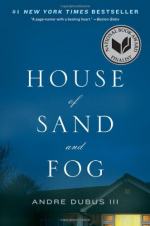|
This section contains 1,905 words (approx. 7 pages at 300 words per page) |

|
Classical Theories - Aristotle and Plato
Summary: From the point of view of each of Plato and Aristotle, describe and judge a work of art created (or at least published/released/performed for the first time) since March 2003.
MOVIE - 'House of Sand and Fog'
Plato and Aristotle have both documented strong opinions about the influence and social purpose of poetry. Plato, in The Republic, outlines reasons for his `refusal to admit the imitative kind of poetry'(Plato cited in ed. Adams 1992, p. 31). Plato's reference to `poetry' does not apply to the poetry of contemporary society, as it was a performance art and not meant for silent reading and reflection. Julia Annas (1981, p. 94) believes that Plato's concern `was with popular culture, the culture that surrounds children as they grow up; in a present-day setting his concern would be with novels, (TV and movies)'; such as the 2003 movie House of Sand and Fog. Plato is worried that youth within his society would be easily influenced by unwholesome ideas contained within poetry. The Poetics is in part Aristotle's response to Plato's argument that poetry is a representation of appearances and is thus misleading and...
|
This section contains 1,905 words (approx. 7 pages at 300 words per page) |

|


